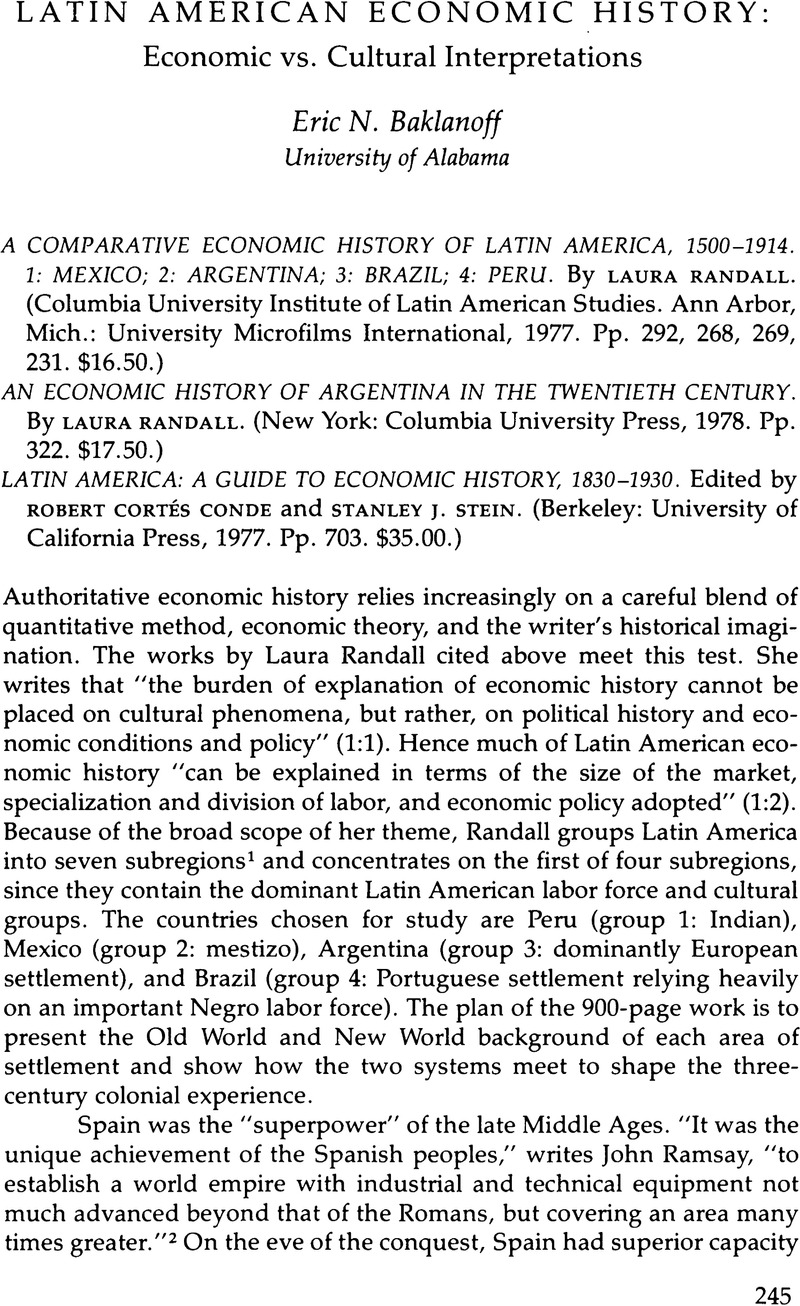Article contents
Latin American Economic History: Economic vs. Cultural Interpretations
Review products
Published online by Cambridge University Press: 24 October 2022
Abstract

- Type
- Review Essays
- Information
- Copyright
- Copyright © 1981 by the University of Texas Press
References
Notes
1. Her grouping is similar to the nine subcultures described in Charles Wagley and Marvin Harris, “A Typology of Latin American Subcultures,” American Anthropologist 57 (June 1955): 428–51.
2. John F. Ramsay, Spain: The Rise of the First World Power (University: University of Alabama Press, 1973), “Foreword.”
3. Ibid., p. 79.
4. Raymond Vernon, The Dilemma of Mexico's Development (Cambridge, Mass.: Harvard University Press, 1963), p. 44.
5. William P. Glade, The Latin American Economies: A Study of Their Institutional Evolution (New York: American Book Co., 1969), pp. 33–38.
6. Flavia Derossi, The Mexican Entrepreneur (Paris: Development Center of the Organization for Economic Cooperation and Development, 1971), pp. 143–58.
7. The seven cases included England, France, Russia, India, Japan, Pakistan, and Colombia (specifically, the Antioqueños). See Everett Hagen, The Economics of Development (Homewood, Ill.: Richard D. Irwin, 1975), pp. 277–80.
- 1
- Cited by


